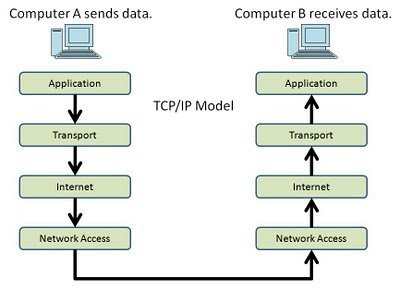Learn Linux Series (#1) - TCP/IP Computer Adaptation
Learn Linux Series (#1) - TCP/IP Computer Adaptation
What Will I Learn?
You will learn how to prepare a computer to work in a TCP / IP network
What a TCP / IP network is
How to configure DNS
Getting to know the principles of operation of the 'hosts' file
How to set the IP address and other network parameters for the card
Requirements
Linux system installed
Basic knowledge of terminal operation
Average knowledge of linux commands
Motivation when something goes wrong
Difficulty
Intermediate
Learn Linux Series (#1) - TCP/IP Computer Adaptation
What a TCP / IP network is
TCP / IP (Transmission Control Protocol / Internet Protocol) - Network protocol - or more precisely a set of protocols - used in the Internet; the Unix systems most often use it.
TCP / IP is more vulnerable to security breaches due to its open, "trustworthy nature".
Its task is to divide the information into appropriate size packets, number them, so that the recipient can check whether all packages have arrived and set them in the right order.
Individual parts of information are inserted into TCP envelopes, which in turn are placed in IP envelopes.
On the recipient's side, the TCP software collects all envelopes and reads the sent data.
If an envelope is missing, it will need to be sent again.
Packets are sent by computers without checking if the path is free.
Therefore, it may happen that more packages come to the specified network node in which the router is located, than the device is able to segregate and send further.
How to prepare a computer to work in a TCP / IP network
Help for people with little knowledge:
sudo - executing a command with administrator privileges
nano - text file editor
All configuration data is stored in the /etc/ directory and its subdirectories.
You should already have a network card installed, i.e. have configured network adapter modules.
You can check it by writing in the terminal:
cat /etc/modules.conf
There should be a line like:
alias eth0 xxxx
It's time to set the IP address and other network parameters for the card.
To do this, edit the file
/etc/sysconfig/network-scripts/ifcfg-eth0
This file should contain a configuration similar to the following example:
DEVICE=eth0
BOOTPROTO=static
BROADCAST=192.168.1.255
IPADDR=192.168.1.X
NETMASK=255.255.255.0
NETWORK=192.168.1.0
ONBOOT=yes
This means that the eth0 device has a static (fixed) IP address 192.168.1.X (enter your address here), a subnet mask of 255.255.255.0, belongs to the 192.168.1.0 network having Broadcast 192.168.1.255.
The last line informs us that the card should be automatically launched at the system startup.
Posted on Utopian.io - Rewarding Open Source Contributors